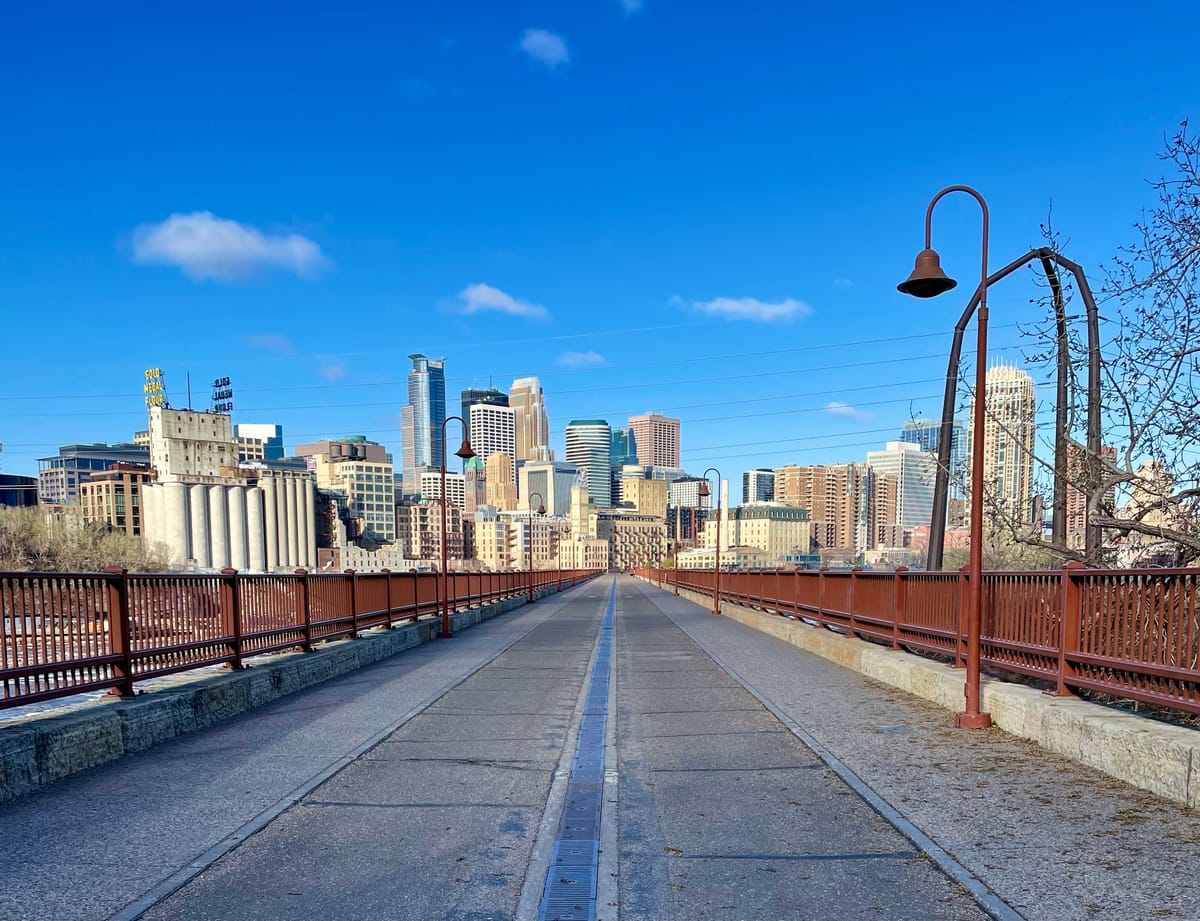Dispatch from Minnesota
I went to dig up the roots of the BSA's anti-gay policy. Here's what I found.

I jumped up in my chair when I saw the headline: “Gay youths allege discrimination.”
This wasn’t a particularly shocking piece of news—such an experience is all too common. But after sitting in front of a microfilm reader for about an hour, spinning through an archived newspaper, I had found what I was looking for.
This news story, from the Jan. 30, 1978 edition of the Mankato Free Press, represented the first domino in what became a 40-year battle over gay membership in the Boy Scouts of America.
“Two Mankato teenagers say they have no recourse other than to ‘go public’ with the allegation that they were kicked out of the Blue Earth County Law Enforcement Police Explorer Post 243 because of their homosexuality,” reads the first sentence of the article.
Those teenagers, Scott Ford and Scott Vance, had been exemplary members of the Police Explorer program, an often-overlooked branch of the BSA that basically trained kids for careers in law enforcement. They would also become the first people to explicitly and publicly challenge the Boy Scouts of America to accept gay members.
This is the reason I found myself last week at the historical archives in Mankato, a small college town about an hour and a half outside Minneapolis. I had traveled there to see what more I could learn about these two boys who took on the BSA. And lucky for me, I would be able to meet with one of them: Scott Vance.
Prior my trip, I had spent more than a year trying to track down either of the Scotts. My initial Google searches yielded very little. I found a defunct Facebook page for a Scott Ford who attended Minnesota State University in Mankato, but when I messaged him, I never heard back. For Scott Vance, I found only a lean LinkedIn profile and an obituary for someone who appeared to be his wife; but Vance was gay, I thought to myself, so that couldn't be him.
In total, this wasn't much to go on, and I had no real leads on contacting them. I didn’t start seriously looking into the two Scotts again until many months later. In an act of desperation, I asked a journalist friend to help me access Spokeo, a sort of online phonebook that offered what I had assumed to be wildly unreliable contact information for just about anyone in the country. When she sent me the possible profiles for Scott Ford and Scott Vance, I was skeptical. Ford’s listed an old street address, but no phone number or email. Vance’s listed three phone numbers—all of which were disconnected—two home addresses and an email.
I decided to send both Ford and Vance a letter, explaining who I was and that I wanted to interview them, on the off chance that they might actually receive it. I also emailed Vance, and to my surprise, my message didn’t bounce.
About two weeks later, I was riding in the car with my boyfriend, absent-mindedly checking my email, when I saw his name at the top of my inbox. “Yes this is me, lol!” Vance wrote back. “I’m sorry it took me so long to reply. I’ve had a sick kitty that passed and I’m in the process of moving.”
When Vance and I got on the phone for the first time, he told me his origin story, how he got kicked out of the Explorer post and ended up as a national news story.
“I don't know if you're aware of it, but the Boy Scouts had to address it. And then they finally instituted a formal policy, for the first time,” Vance told me.
“Yes, yes!” I said, cutting him off. “That's actually the whole reason I'm talking to you!”
My excitement may have gotten ahead of me. But I couldn’t believe I was really talking to him, this person who was so pivotal to the story I’m telling. We made plans to meet in person, in Mankato, which is not terribly far from the small farming community that Vance calls home these days.
So last week, I rode around Vance’s hometown as he pointed out the window of his white pickup truck, to the police station where his Explorer Post used to meet; to the college building where he held a press conference after his expulsion; to the park where he used to go to hang with the few other gay people in town.
I gained a vivid sense of Vance’s character—he’s the kind of person who’s empathetic to a fault, who always went far out of his way to help anyway he could. When I asked if he had saved any old news clippings or photos from his battle with the Scouts, he said he didn’t, because he never wanted to be famous, he just wanted to help.
His efforts would end up having the opposite effect, prompting the BSA to double down on exclusion of gay members. But he sees even that as a benefit, because at least it forced them to publicly own their policy of discrimination.
Vance’s advocacy had both immediate and long-lasting impacts on his life. In the weeks after his press conference in 1978, his walks around town would elicit both handshakes and thrown rocks or eggs. The local police department largely turned its back on Vance and his family. He claims that, decades later, when his 81-year-old mother was arrested by Mankato police for a minor violation, it was a form of retribution.
After spending the afternoon with Vance in Mankato, I retreated to the air-conditioned historical society in town, where I was hoping to find some trace of Vance’s story. It took me a while to get the hang of scanning through old microfilm, but I eventually zeroed in on a trove of useful information. The Mankato Free Press covered Vance’s story as front page news for the better part of a month, even dedicating space on its editorial page to the matter.
So I left Minnesota with exactly what I came for: A stack of historical evidence in the form of archival newspaper scans, and a far deeper understanding of the origins of the BSA’s anti-gay policies.
There’s a lot more detail that I’m not quite ready to share here in this newsletter, but I’ll be spending the next couple of weeks weaving it into my book. And when it’s ready for the world to see, I’m hoping my readers will have a whole new understanding of how the BSA got into this mess in the first place.




